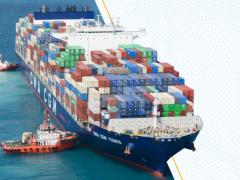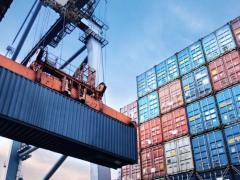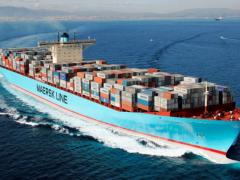Despite a fundamental shift from air to the cheaper seafreight option, air cargo is still growing, according to Alwyn Rautenbach, director of Airlink Cargo and chairman of the Air Cargo Operators' Committee (Acoc), “but at a slow pace.” He acknowledged that cost was a primary factor. “Air will never compete on price,” he said. “But one of the things you can’t ignore is speed and efficiency of delivery.” And that efficiency factor can often play a major role when shippers calculate just how much the overall cost is if you use sea – and include the cost of stockholding. “With sea you need a bigger stockpile,” Rautenbach added. “This is because sea is not necessarily that reliable on scheduling. “And remember that you must make provision for a worst-case scenario in your stockpiling. And these invisible costs mount up. “So the calculation must be one of time and efficiency.” And Rautenbach was adamant that perishable cargoes would always be very much an air cargo. “Perishable exporters can only win the best prices by being able to deliver to the markets when the prices are at the top of the curve,” he said. “And that’s a very short time window.” Tim Barron, the Durban-based airfreight manager for Bidvest Panalpina Logistics, confined his comments to the KwaZulu Natal market. When asked about whether the air-sea shift had become a growing trend, he said: “The best answer I can give is that what moved to sea certainly hasn’t returned to air. “The figures for Durban have not shown any signs of improvement on the figures we knew in 2008, before the economic slowdown started.” And it’s nothing to do with the Durban International Airport having shifted about 50 kilometres north of the city, and Emirates being the only international carrier calling at the new King Shaka Airport. “The same situation existed way back at the old airport,” Barron added. “And, indeed, the main change is that there’s now greater capacity into Durban, after Emirates put on bigger planes about two years ago. “But, while imports have certainly grown, export cargo from Durban has not increased as much as that airline hoped.” Barron agreed that the price factor was “extremely sensitive” in shippers’ calculations, but that timing played an important role from a manufacturer’s production scheduling point of view. And he noted an indicator of the airfreight market’s pessimistic mood. Swissport – the main cargo handlers for most of the foreign airlines calling at Johannesburg’s OR Tambo International Airport – has cut its Thursday truck services between Johannesburg and Durban out of its weekly scheduling, he said. “And that’s purely due to the reduced volumes." Something that could indicate a decline of up to double figure proportions. According to a survey in 2012 by investment firm Stifel, Nicolaus & Co and UK research firm Transport Intelligence, more than 80% of shippers and freight forwarders at that stage expected to migrate away from airfreight to ocean. This shift was driven by cost-conscious shippers trading down to lower-cost ocean services from traditional airport-toairport airfreight. INSERT & CAPTION You must make provision for a worstcase scenario in your stockpiling. And these invisible costs mount up. – Alwyn Rautenbach












